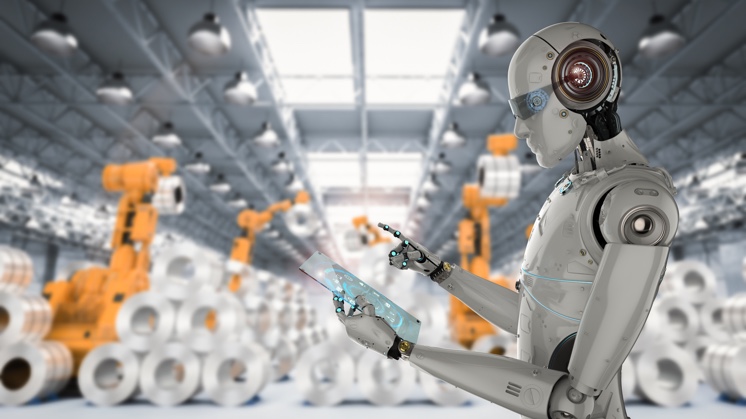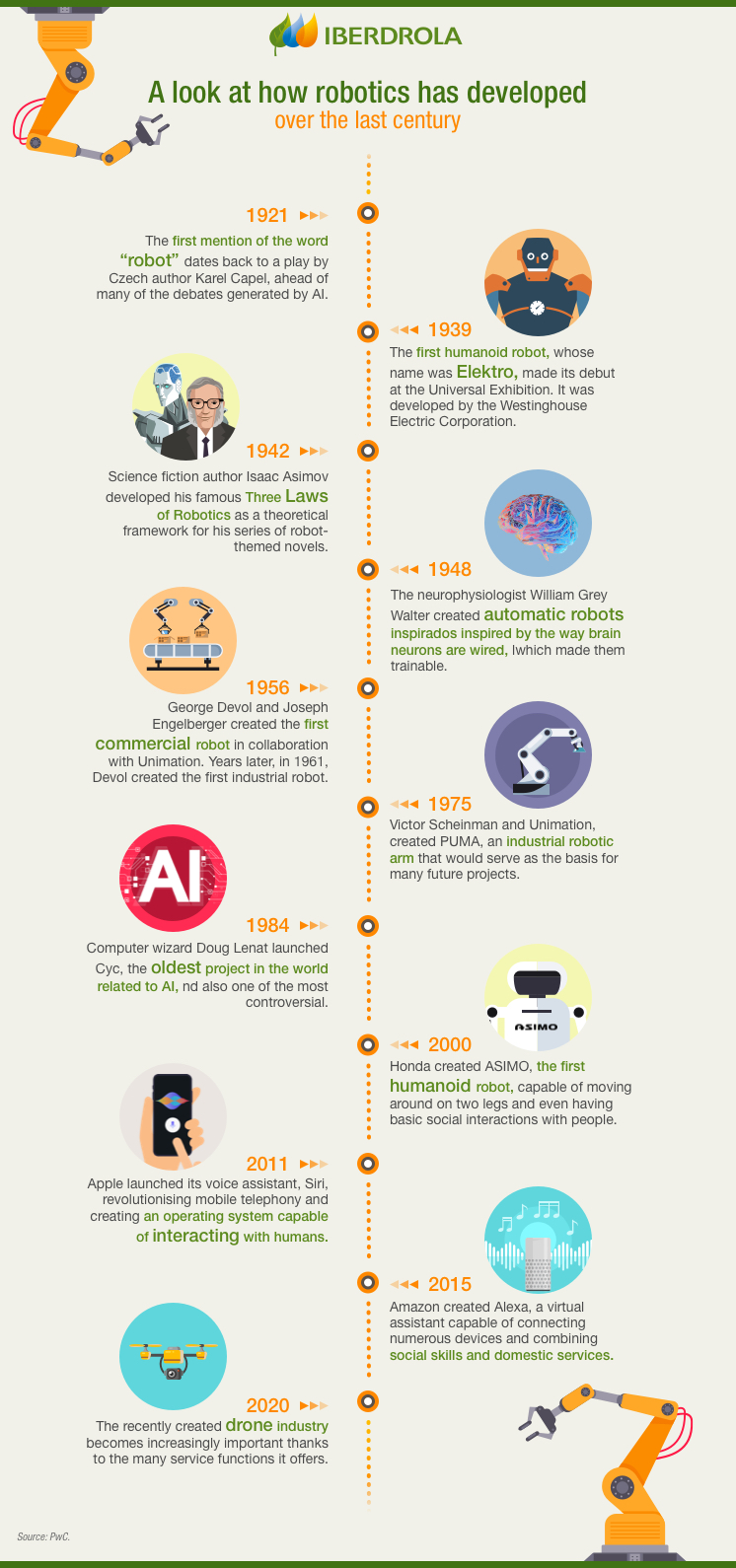ANDROID ROBOT
Is the age of the androids getting closer?
Elon Musk, CEO of Tesla Motors, recently announed that his company would start developing androids in 2022 with the intention of them taking over the dangerous, repetitive and boring tasks currently performed by humans. Although some have questioned the announcement, the truth is that other companies, such as Honda and Toyota, among others, have been working on this type of machine for years which will sooner or later become an everyday part of life.

It wasn't so long ago that androids were no more than fantastical creations found only in science fiction comics and films. These days, however, technological innovation is advancing in leaps and bounds, and these beings made of nuts and bolts, cables and microchips, are getting closer all the time. In fact, Elon Musk, CEO of Tesla Motors, announced on 20 August 2021 that his company was already developing an android (Tesla Bot), which would be used to carry out "unsafe, repetitive and boring" tasks, currently performed by humans.
THE IMPACT OF ROBOTS ON SOCIETY
Robots are evolving all the time and are having a growing impact on our daily lives, whether at the industrial level, where collaborative robots (cobots) have become commonplace in factories, or homes, where they are put to work vacuuming up dust from the floor. In fact, many mechanical tasks are now being performed by robots, although with some supervision from humans to deal with any problems that may arise.
We have not reached the point where robots can replace humans in most jobs, but the gradual robotisation of jobs is already happening, and they are becoming essential components within industrial teams. In fact, the growth of fleets of industrial robots has increased considerably in recent years in the European Union, with a faster rate of growth than even Japan, traditionally the highest.
Industrial robots, together with service robots, are essential to the Fourth Industrial Revolution, but this will soon be joined by robotic process automation (RPA), which is transforming the way companies operate, streamlining processes and lightening the workload for humans. So, it is clear that robots are taking off affecting jobs, experts say they will destroy millions of jobs, but that even more opportunities will be created with the rise of digital profiles, work conditions and even corporate structure and organisation.

The Laws of Robotics
Before we finally dive into the world of robots, and although the complex robots of Isaac Asimov's imagination have still not been developed, it is interesting to take a look at the laws of robotics devised by this Russian science fiction author back in 1942. Over time, they have become a basic framework when it comes to designing robots intended to have a certain degree of independence, that is to say, those that are able to obey orders and make their own decisions.
The First Law
"A robot may not injure a human being or, through inaction, allow a human being to come to harm". Asimov intended robots to put human life ahead of all else.
Second Law
"A robot must obey the orders given it by human beings except where such orders would conflict with the First Law". That is to say, robots must always obey orders other than when this would endanger a human.
Third Law
"A robot must protect its own existence as long as such protection does not conflict with the First or Second Laws". So, robots must protect themselves provided that this does not mean disobeying or endangering a human being.
WHAT ARE ANDROIDS AND WHAT ARE THEY FOR
The term "android" refers to certain robots that bear some resemblence to human beings, both physically and behaviourally. So, not all robots are androids. At this point, we can distinguish between the latter and the cyborgs.: The main one is that androids are entirely machine, while the cyborgs are a combination of mechanical and organic elements.
The word "android" comes from the Greek "andro" (man) and "eides" (shape), and only male-like humanoid robots were considered when the term was coined. In fact, robots with a feminine appearance are called "ginoides"; "gino" being "woman" in Greek. In any case, the term "android" has now become ubicuitous and is used for both.
Although in films and books, androids have highly-developed artificial intelligence (AI), even superior to that of humans, the truth is that so far, these machines are far more limited when it comes to their skills and responsibilities. Their main usefulness lies in the fact that they can save a lot of time by performing human tasks to improve our everyday quality of life and job productivity, either by taking care of household chores or parts of the production process that are too hazardous or mechanical for humans.
THE MOST FAMOUS ANDROIDS
During the last century, we got some clues about what androids would be like from fiction novels and, more recently, they have been brought to life in films and TV series. But, what are they really like? Here are a few examples of the best-known, most advanced androids:
- Sophia. Developed by Hanson Robotics in 2015, this female-type robot became extremely popular, appearing on the covers of magazines like Cosmopolitan and Elle. She even became the first robot to be granted citizenship in a country, in Saudi Arabia, in 2017.
- Kebbi. The robot developed by Nuwa Robotics found fame with its ability to recognise the faces and voices of family members. It can also understand body language, tell stories and teach languages.
- Robelf. Security is another area where androids can be helpful. This is the case of this robot developped by Robotelf Technologies, the perfect security guard for your home with voice, vision and position sensors.
THE FUTURE OF ROBOTICS
We have now established that manual labour and hazardous and repetitive tasks can be taken over by robots thanks to automation. In the years to come, continuous progress in AI, such as automatic learning, deep learning and natural language processing, among others, point to a future where robots will improve more and more, and may be able to perform administrative and even creative tasks.
In the long term, it is possible that robots may find a niche in sectors like healthcare, an important facet of so-called e-Health Domestic robots, in the meantime, will be perfected and able to take over many more household chores, even doing the jobs of babysitters or care workers. When it comes to security, it is very likely that robots will join the security services, taking part in the fight against terrorism or armed conflicts.




